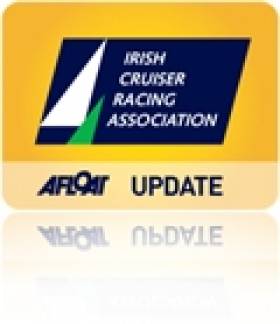Displaying items by tag: Denis Noonan
ICRA Hears Appeals for Greater Participation in Sailing
#SAILING – The tenth Annual ICRA Conference took place in Dun Laoghaire for the first time on 26th November in the same year ICRA was awarded the Mitsubishi Club of the Year trophy writes ICRA Commdore Barry Rose. It was a well attended event by a very representative group of sailors and club representatives from all Coasts of Ireland.
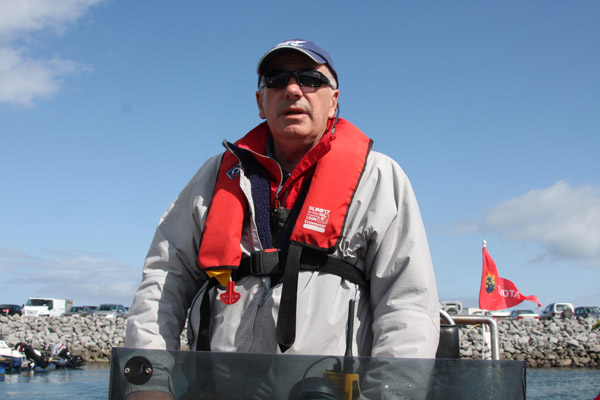
Barry Rose Chaired the ICRA Conference in Dun Laoghaire
The format this year created an inter active discussion in the morning session on Class Bands and the promotion of participation in Cruiser Racing in general. A lively, frank discussion took place with strong views being expressed by most present highlighting the problem of attracting crews to enable boats to go racing and creating access to allow those interested to go sailing to participate in the sport.
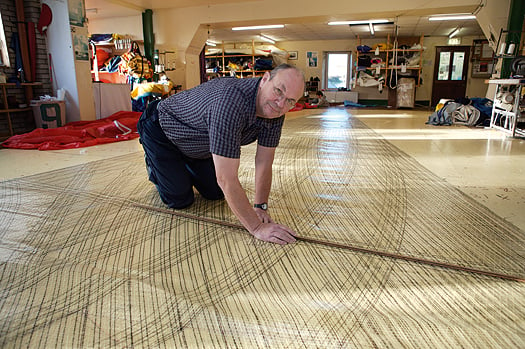
Des McWilliam spoke passionately about Irish sailing - Photo: Bob Bateman
Sailmaker Des McWilliam made a strong appeal that the future of the sport was threatened by difficulty in accessing getting afloat and sailing by the Club structures that were becoming more of a closed shop approach. Maurice O'Connell also spoke passionately on the same subject and examples were given of difficulties encountered both In Cork and Dublin in gaining access to participating in sailing and racing while boats were remaining tied up for lack of crews.
An understanding of the dilemma for the Clubs was also expressed by Flag Officers present in maintaining their facilities for those paying membership while encouraging new sailors to gain access at reasonable cost for a period.
It was agreed that all present would make every effort on a personal basis to encourage opportunities for those interested to go sailing to gain opportunities on boats and access to Club introductory offers.
ICRA will also explore creating an on line vehicle for available crews to register so boat owners gain opportunity to make contact.
There was also suggestions aired that bottom end of Class 1 should be included in Class 2 where all would have better racing.
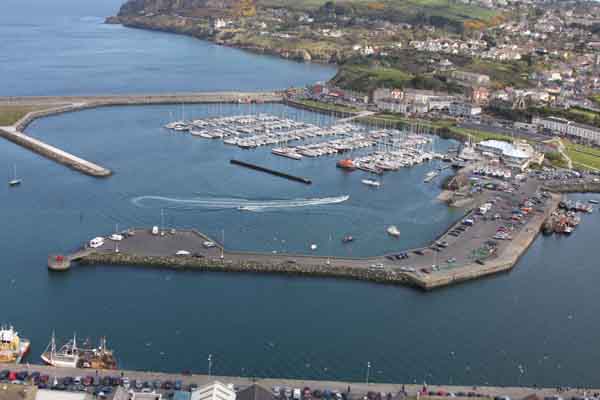
Howth, the venue for the 2012 ICRA Champs
The Royal Cork Yacht Club was complimented for running a top Class ICRA National Championships in June. Howth Yacht Club gave an update that arrangements are well progressed for an exciting ICRA National Championships in Howth 25th to 27th May 2012. The previous weekend will host the Corby Cup which will encourage those travelling to participate in Nationals and ISORA will run a feeder Race from Wales. It is hoped to announce a Sponsor shortly. Howth plan the first Race for 1600 hrs on Friday to avoid necessity for those travelling to stay over on Thursday.
The main feature of the afternoon session was a similar open forum with Race Officers Jack Roy, Henry Leonard and Harry Gallagher joining the top table for an open discussion on course types that sailors wanted and communications sailors would like with Race Officers. This was also a lively session with frank constructive exchanges which was of benefit to sailors and Race Officers alike.
The feeling of the meeting was that in addition to windward /Leeward courses sailors wanted a good variety of course types both at National Championship level but also at Regional events. Also those present strongly requested that boats over the line at starts be informed whenever possible but on strict understanding in Sailing Instructions that there be no redress in any circumstances relating to same against Race Officers.
Both these forums provided an excellent opportunity for those attending to air their views on all matters relating to Cruiser Racing and to offer ideas and this will be developed further for future conferences.
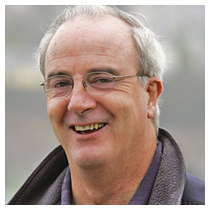
Commodore's Cup Captain Anthony O'Leary. Photo: Bob Bateman
The Commodore reported on efforts to form a team to defend the Commodore's Cup in 2012 and Anthony O'Leary brought the meeting up to date in changes to the event format and expressed confidence that there would be a positive response to ICRA 's request for declarations of interest to form a credible team to defend the Cup as is Ireland's responsibility.
Denis Noonan of Wicklow Sailing Club expressed the Clubs upset and disappointment that an Irish Club would arrange a competing event The Round Rockall Race from Galway starting on the same day as their Iconic Round Ireland Race. They outlined their plans for the 2012 Round Ireland Race and received support for their efforts from those attending. The RORC has increased their points scoring for the Round Ireland Race as further recognition of its standing in World offshore racing. Both ICRA and the ISA confirmed their support for the Round Ireland Race.

Pat Kelly's Storm is ICRA's Boat of the Year. Photo: Bob Bateman
The Conference finished with the presentation of the magnificent crystal ICRA Boat Of The Year trophy for 2011 to Pat Kelly's J 109 Storm who won the ICRA Nationals in Cork in June, The Cruiser Challenge in Dublin in August, The Howth Autumn Series and also travelled to the Scottish Series and Sovereigns Week. It was felt she embodied the spirit of a well campaigned ICRA cruiser racer. A week later Kelly became Afloat's Sailor of the month for November.


























